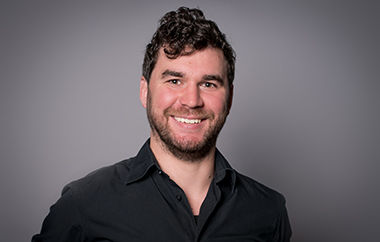PhD in Bioscience
Current position: Assistant Professor in Environmental Economics at the Vrije Universiteit of Amsterdam
Research focus: economics of sustainability transitions and circular economy
Alternative economic systems require further investigation, especially the macro-economic analysis is still lacking. Jan aims to implement circular economy systems where all material will flow in one loop. Circular economies are more sustainable than linear economies. Decreased raw material use and waste generation allow natural systems to regenerate. Jan aims to achieve this through implementing and developing refurbishment, reuse, sharing, and material recycling. These initiatives are set to become part of an integrated approach towards circular economies.
Jan’s research refers to gathering, processing, and analysing all available data on circular economy. With this approach, he can analyse the indicators on circular economy and support the uptake of the circular economy by applying macro- and micro-economic modelling techniques, which demonstrate the potential of circular economies. His methods will map and quantify the demand and supply for products and materials to facilitate the match-making between consumers and suppliers.
CV as submitted for the Green Talents award (2018):
VITO, Belgium
Research focus: modelling and developing the concept of circular economies
Alternative economic systems are both relatively new and diverse, thus requiring further investigation. New insights on alternative economic systems are provided, however the macro-economic analysis of these economic innovations is still lacking. In saying this, Jan aims to implement circular economy systems where all material will flow in one consistent loop. Circular economies are more sustainable, both in regards to their independency upon virgin raw materials and their decrease of waste generation, than conventional linear economies. Decreased raw material dependency and waste generation allow natural systems to regenerate and creates the necessity for raw materials to be reused and regained. Jan aims to achieve this through implementing and developing refurbishment, reuse, sharing and material recycling in his research. These initiatives are set to become part of an integrated approach towards circular economies.
Throughout his academic and working career, Jan focused on alternative economic systems which are essential to steer the economy towards a more sustainable direction. His research refers to gathering, processing and analysing all available quantitative and qualitative data on circular economy. With this approach, the importance of circular economy at macro-economic level is emphasised and indicators on circular economy can be analysed. Jan supports the uptake of the circular economy by applying macro- and micro- economic modelling techniques, which demonstrate the potential of circular economies. His methods will map and quantify the demand and supply for products and materials to facilitate the match-making between consumers and suppliers of these assets. During the Green Talents Science Forum, Jan expects to extend and develop his network and reach out to promising researchers in the field of circular economy. Furthermore, one of his objectives is to encourage the development of circular economies by educating young people in this field as they are the future driving force.
The jury believes that Jan’s revealing data can assist entrepreneurs and policy makers to investigate and invest in this potential. Algebraic models (both partial and general equilibrium models) can also be used to stimulate the impact of policy scenarios, which can contribute to the process of government decisions.






